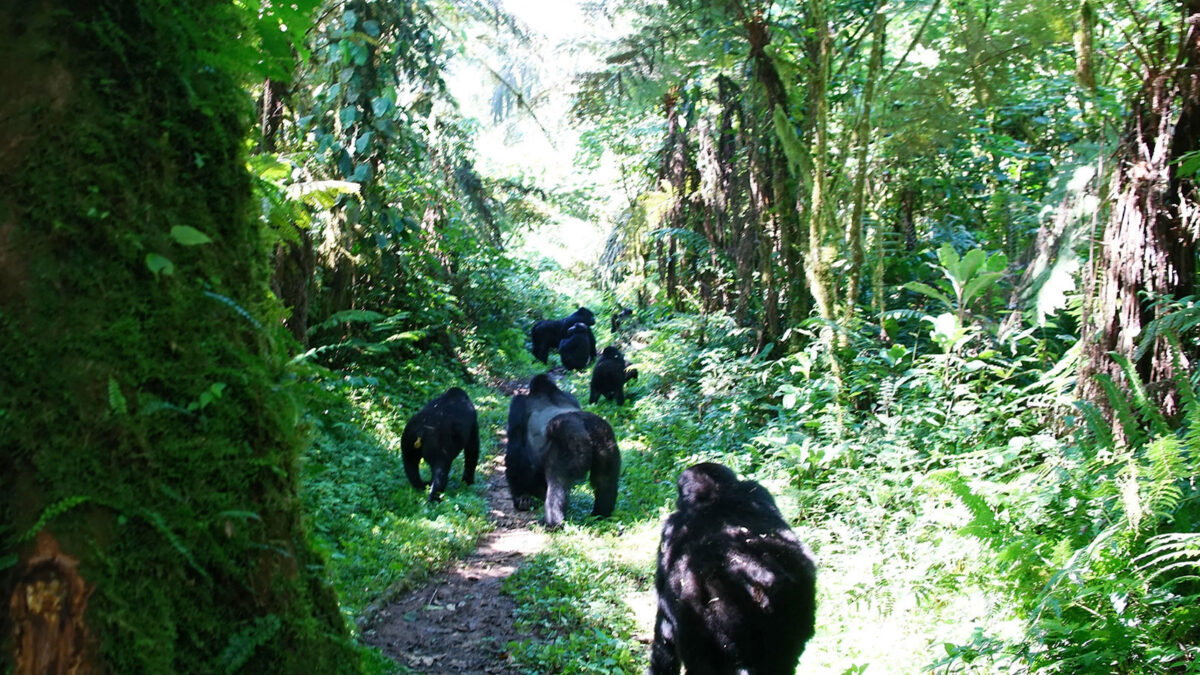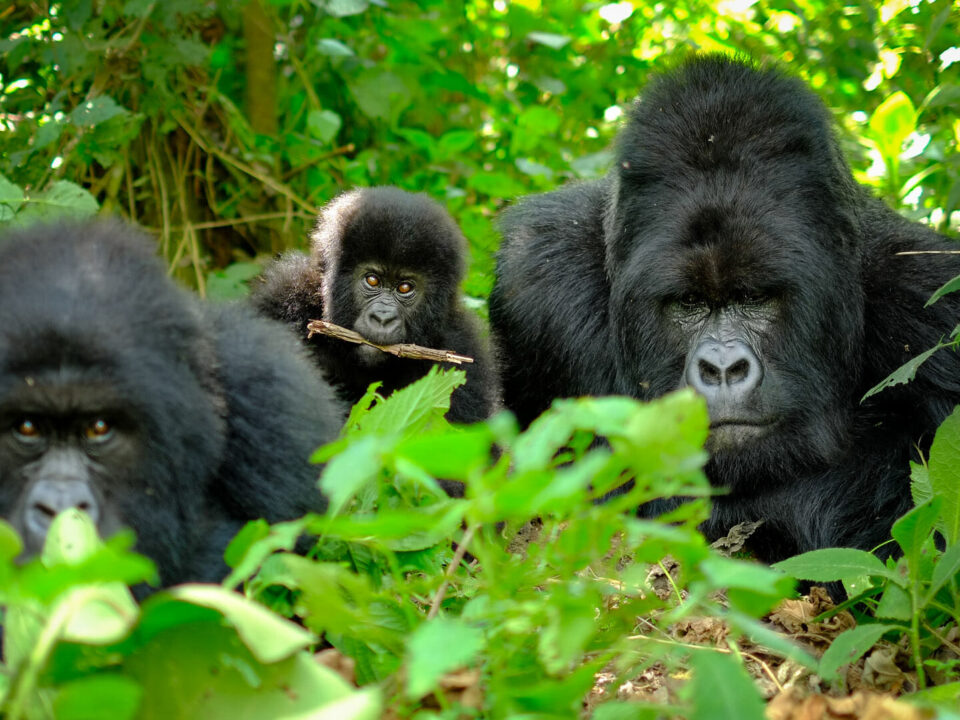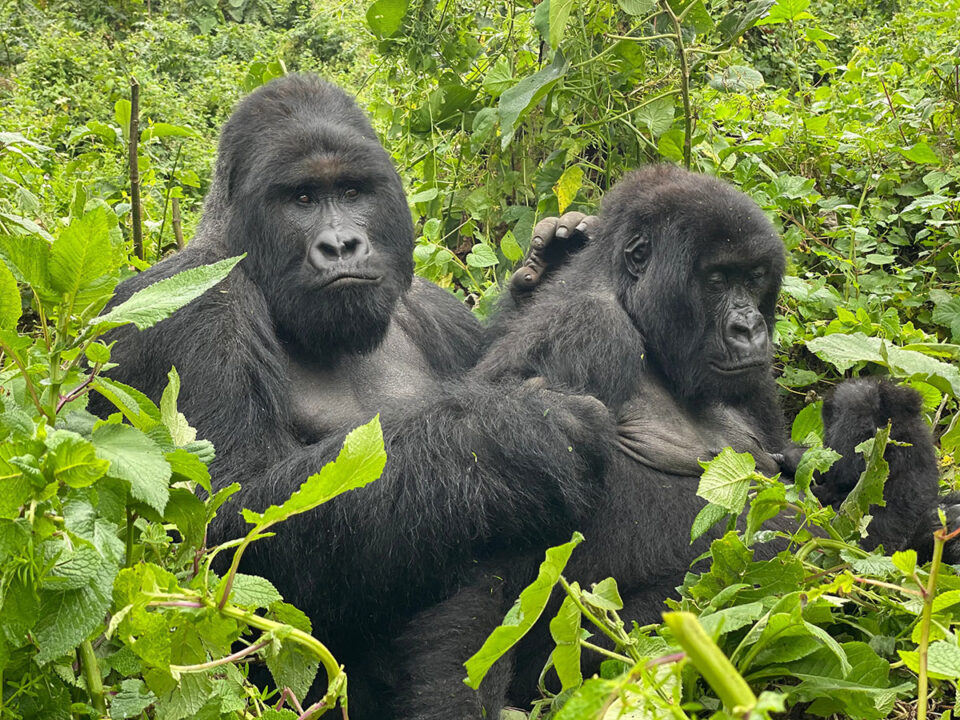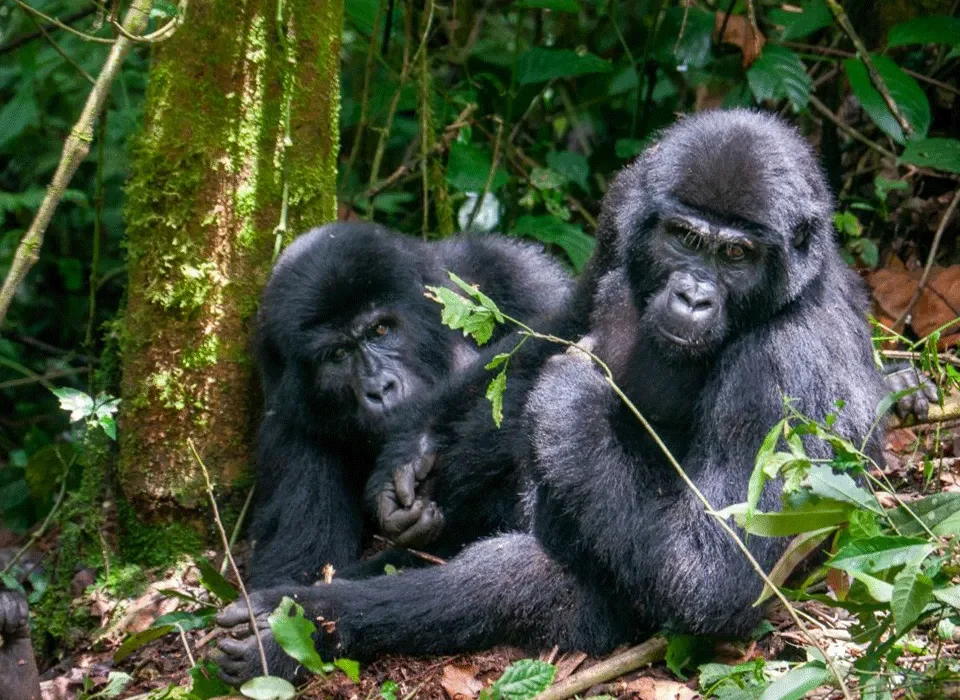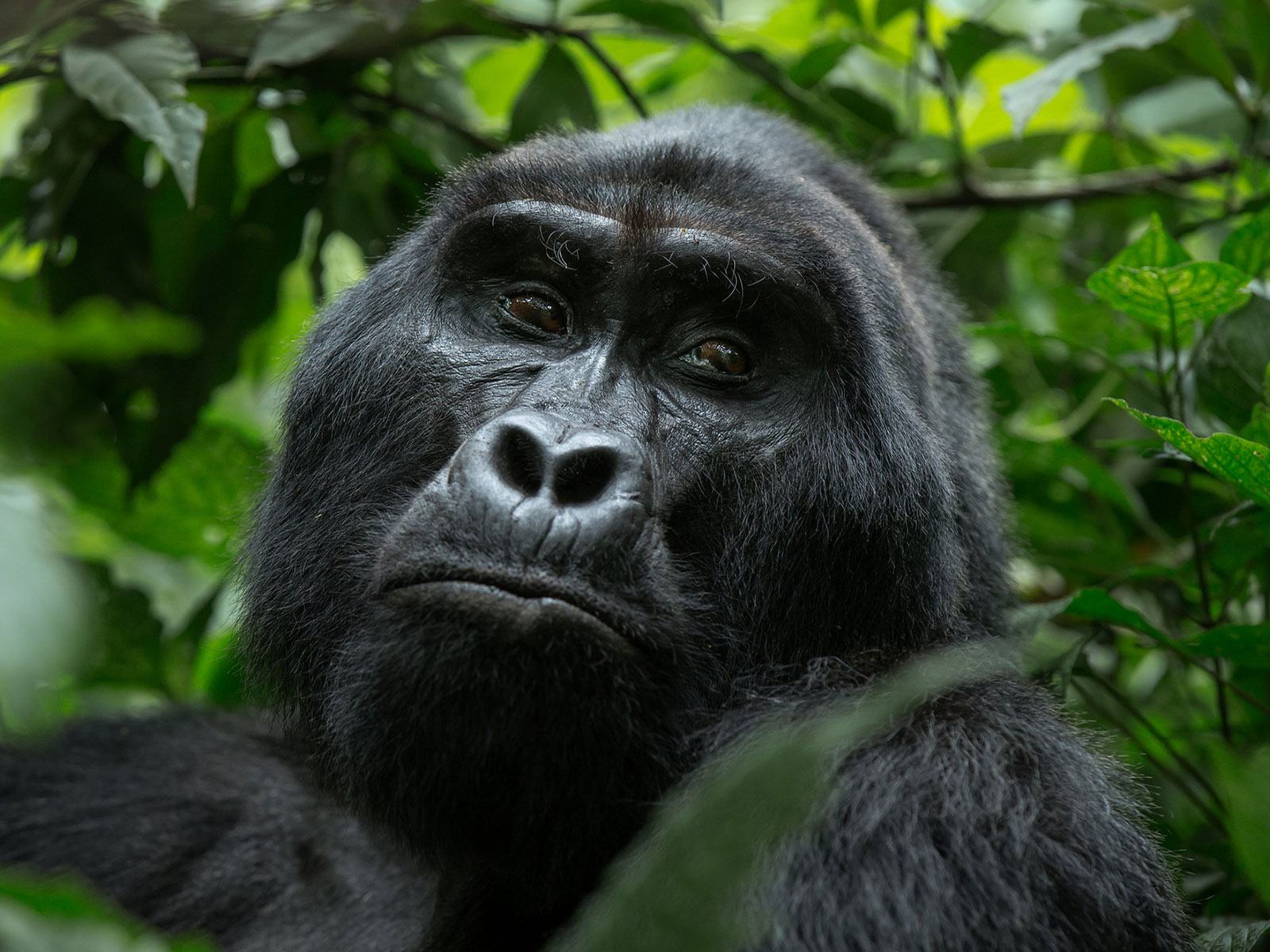
Why Trek Uganda Gorillas via Kigali, Rwanda
August 15, 2023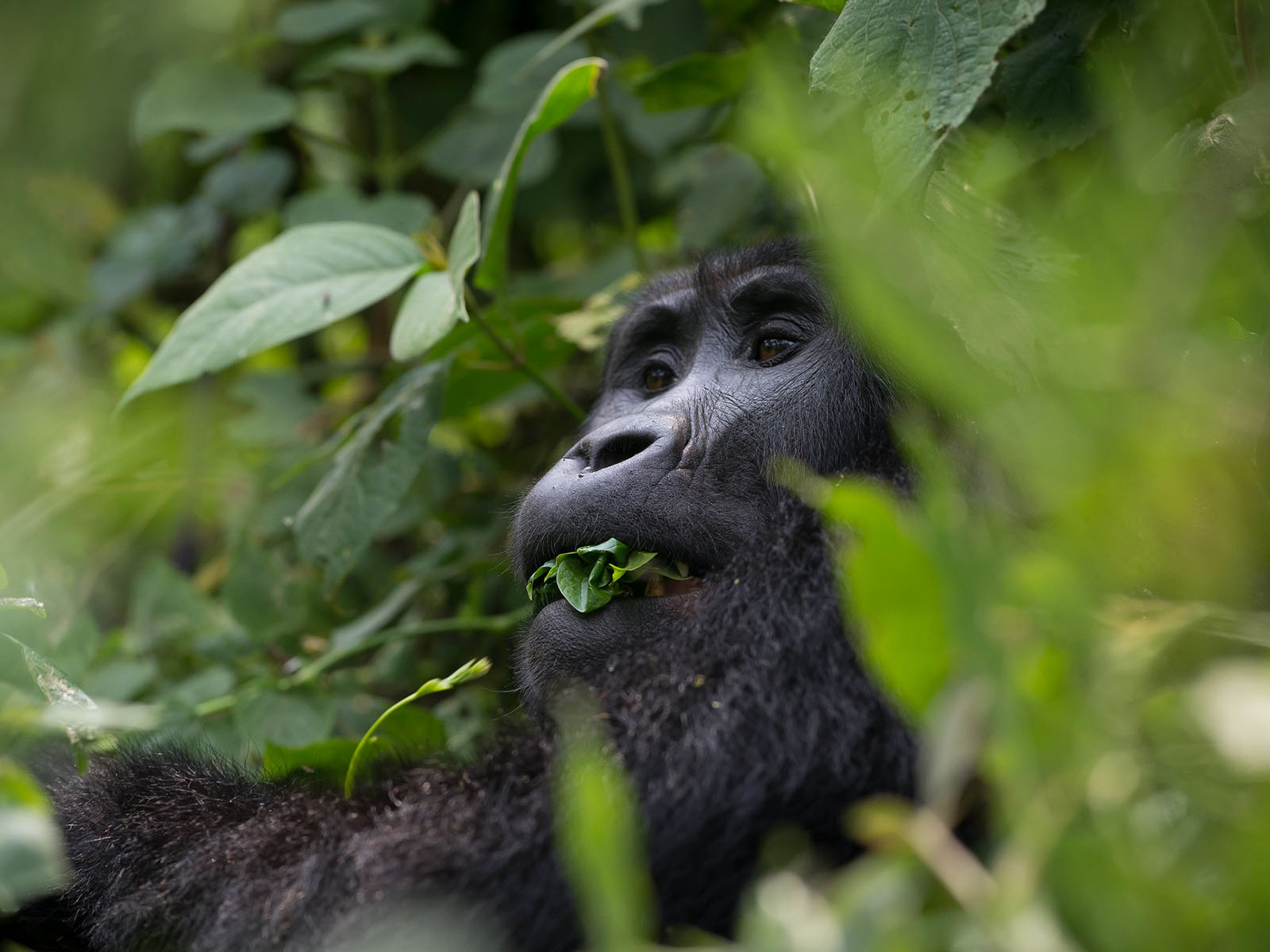
How Many Mountain Gorillas Are Left?
August 15, 2023Is there a Gorilla Habituation Experience in Rwanda?
The quest for captivating Gorilla safaris in Africa naturally leads curious tourists to wonder: Does Rwanda’s Volcanoes National Park offer a Gorilla habituation experience? For those seeking an even deeper connection with these majestic creatures, this question holds immense significance.
However, it’s important to note that the exclusive Gorilla Habituation Experience is not conducted in Rwanda’s Volcanoes National Park. Instead, this unique opportunity is available in the southern region of Uganda’s Bwindi Impenetrable Forest National Park, specifically within the Rushaga sector. The allure of this experience lies in a remarkable 4-hour rendezvous with the Mountain Gorillas. The journey commences the moment fresh trails of these Gorillas are discovered, marking their recent nesting sites from the prior night.
Delving into the intricacies of Gorilla habituation reveals a collaborative effort involving a team of trackers, guides, and researchers. Their approach to a semi-habituated Gorilla family is characterized by non-threatening interaction. Their shared goal is to decipher the optimal means of communication with the Mountain Gorillas. Engaging in this process contributes to gradually acclimatizing these extraordinary creatures to human presence. It’s worth acknowledging that this endeavor is not without its risks, particularly considering the inclination of the dominant silverback to assert its authority.
Mountain Gorillas, as wild animals, inherently harbor a natural fear of humans, akin to many other species. Their response to human interaction ranges from retreating to displaying signs of aggression. While instances of Gorilla charging remain infrequent, they can transpire when a wild group encounters humans who haven’t undergone the habituation process. The essence of Mountain Gorilla habituation lies in fostering a sense of comfort between these gracious creatures and humans. This intricate journey typically unfolds over a span of two to three years, though the duration can extend up to five years.
Appreciating the prospect of encountering some level of assertiveness during the habituation process is essential. The linchpin of successful Gorilla habituation involves establishing a rapport with the dominant male. Once this pivotal connection is forged, researchers are granted the privilege of close proximity to other members within the group. Upon the completion of the habituation process, tourists are finally permitted to partake in the enchanting sight of these awe-inspiring beings. It’s worth highlighting that the practice of naming individual members of the Gorilla group takes place as an integral part of the habituation journey.
In the realm of African safaris, engaging with the gentle giants of the Mountain Gorillas has emerged as a premier wildlife attraction. Each year, a multitude of tourists from various corners of the world venture to Africa with a singular purpose: to witness the grandeur of the Mountain Gorillas. These majestic primates find their habitat exclusively within East and Central Africa. They thrive amidst the lush, mountainous landscapes of Bwindi Impenetrable National Park, Volcanoes National Park, Mgahinga Gorilla National Park, and Virunga National Park, epitomizing the natural wonders of these regions.

